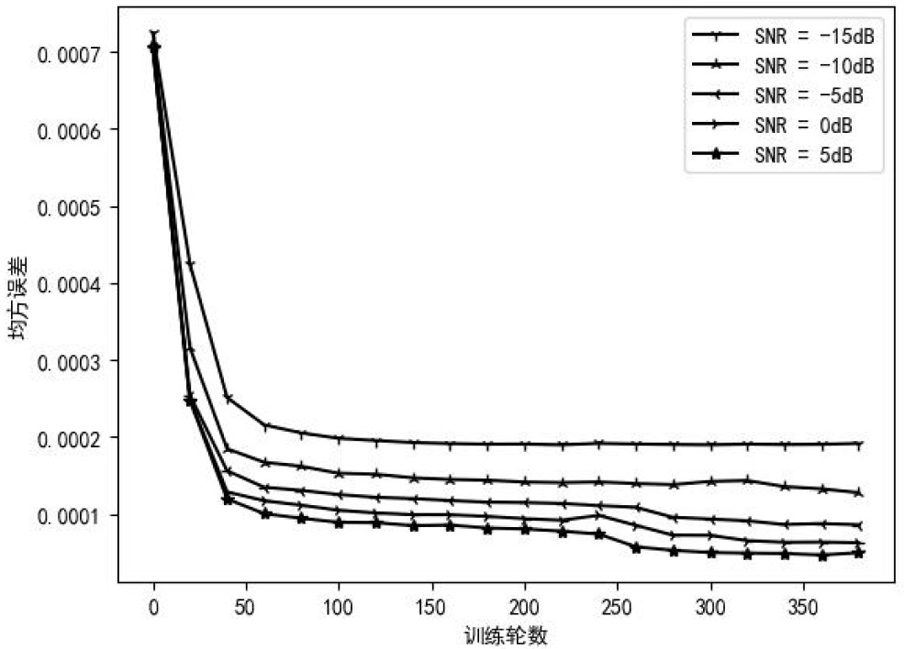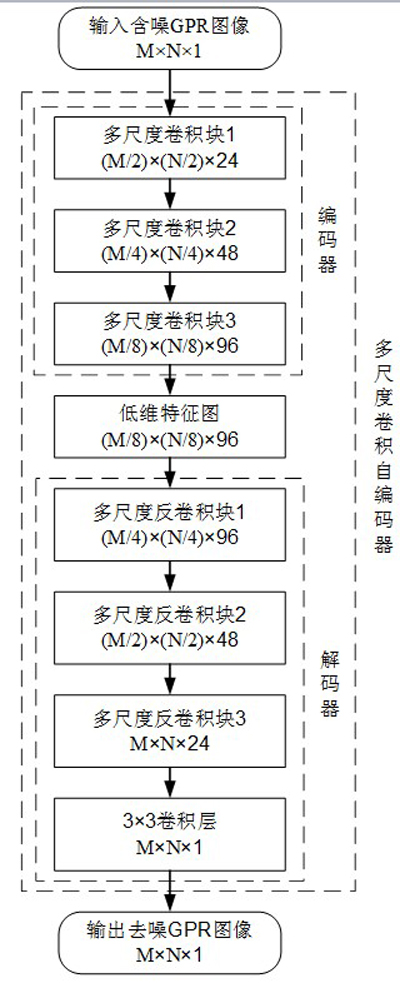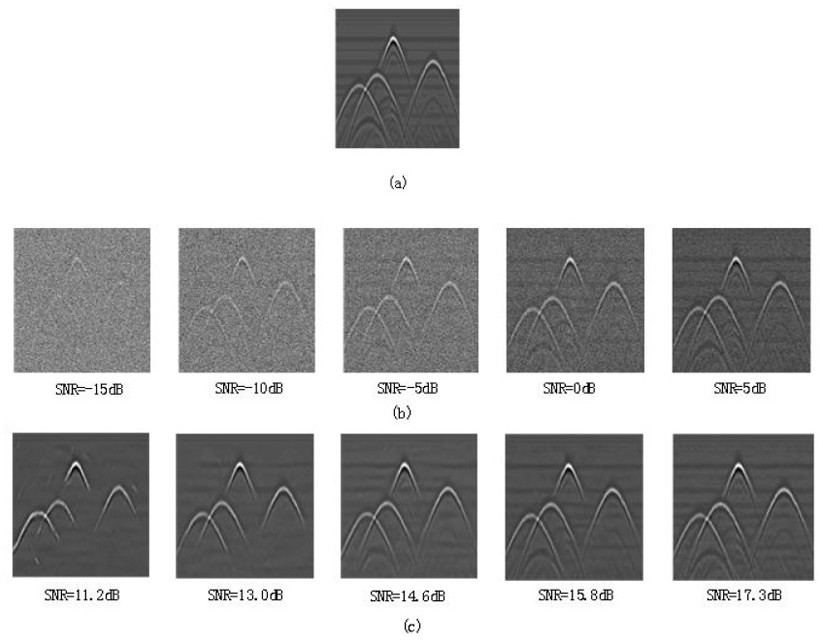Ground penetrating radar B-scan image denoising method
A ground-penetrating radar and image technology, applied in image enhancement, image analysis, image coding, etc., can solve problems that are not suitable for real-time applications, high processing time, etc.
- Summary
- Abstract
- Description
- Claims
- Application Information
AI Technical Summary
Problems solved by technology
Method used
Image
Examples
Embodiment Construction
[0062] The invention provides a ground penetrating radar B-scan image denoising method, specifically comprising the following steps:
[0063] Step 1: Ground-penetrating radar (GPR) detects the single background medium area with pre-buried pipeline targets on the surface, the direction of the survey line is perpendicular to the axis of the pipeline targets, and the corresponding pipeline targets are respectively Z According to the radar scattered electromagnetic wave data of the target, Z noise-free GPR tag images with hyperbolic characteristics are obtained; Z A noise-free GPR label image constitutes a noise-free GPR label dataset; each noise-free GPR label image for a picture M x N 2D image of M , N They are the number of pixel rows and columns of the two-dimensional image; Gaussian white noise from low to high is sequentially added to the noise-free GPR label data set with hyperbolic characteristics to form a corresponding signal-to-noise ratio of -15dB, -10dB, -5dB, 0...
PUM
 Login to View More
Login to View More Abstract
Description
Claims
Application Information
 Login to View More
Login to View More - R&D
- Intellectual Property
- Life Sciences
- Materials
- Tech Scout
- Unparalleled Data Quality
- Higher Quality Content
- 60% Fewer Hallucinations
Browse by: Latest US Patents, China's latest patents, Technical Efficacy Thesaurus, Application Domain, Technology Topic, Popular Technical Reports.
© 2025 PatSnap. All rights reserved.Legal|Privacy policy|Modern Slavery Act Transparency Statement|Sitemap|About US| Contact US: help@patsnap.com



